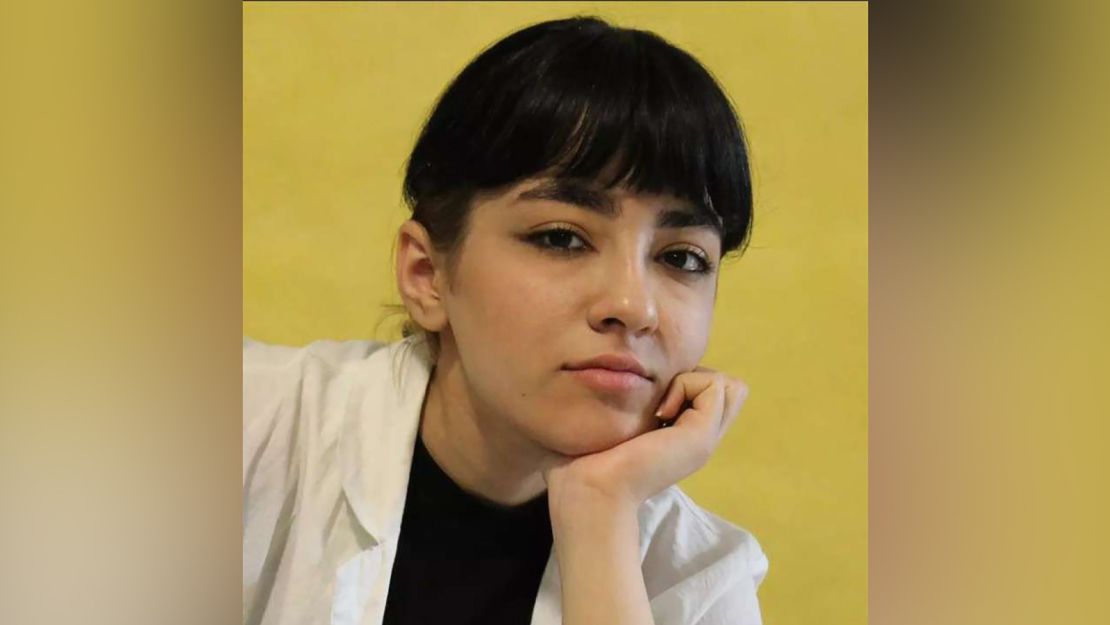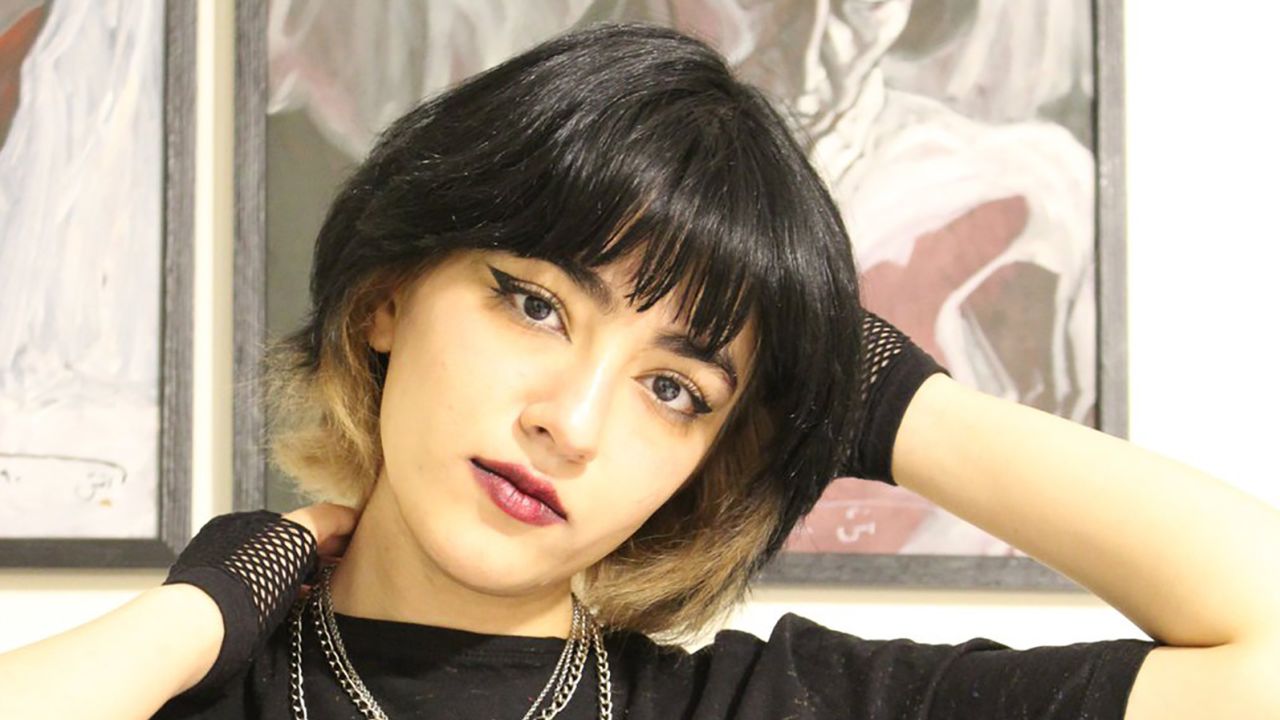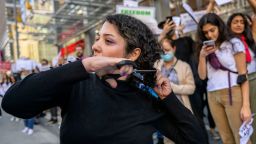Iranian security forces have arrested eight people over the death of a 16-year-old teenager, Nika Shahkarami, in Tehran last month, Iranian media said on Tuesday.
Family members told BBC Persian that her whereabouts was unknown for 10 days before they found her body in a morgue in the capital.
Her aunt, Atash Shahkarami, told BBC Persian in an interview Friday that her niece left her home on September 20 around 5 p.m. local time, and that she was in contact with her until 7 p.m.
The aunt said she was told by Shahkarami’s friend that the teenager posted a story to Instagram showing her burning her headscarf, and that Shahkarami told her she was being followed by security agents.
After that, the family lost contact with Shahkarami, the aunt told BBC Persian. The family found her 10 days later at a morgue in at a detention center in the capital.
“When we went to identify her, they didn’t allow us to see her body, only her face for a few seconds,” Atash Shahkarami told BBC Persian.
State-aligned news agency Tasnim said Shahkarami was found dead on September 21 in the backyard of a house in Tehran. Tasnim said that police watched surveillance footage of Shahkarami entering an adjacent building and that it remains unclear how she died. Tasnim said there is “no evidence” of claims by “foreign media” that that the teenager was killed by the police.
The semi-official Fars News agency on Wednesday published CCTV footage that it claimed showed the last moments of Shahkarami’s life.
The video, which the agency said it obtained from police and judicial authorities, shows a person walk into an alley and enter a home, pulling down their face mask as they walk through the door. The person is not immediately identifiable.
The video’s timecode indicates that it was filmed just after 12 a.m. local time; lights in the doorway of a neighboring home and shadows on the street suggest that the video was recorded at night.
“This is the last video of Nika Shahkarami, 7 hours before her body was discovered,” Fars News said, claiming that it showed the teenager going into a half-finished home near her aunt’s alley while talking on her mobile phone.
The eight people arrested were workers in the building where Shahkarami allegedly entered, Tasnim reported.
Tehran’s prosecutor Ali Salehi said a judicial criminal case has been launched and expressed his condolences to Shahkarami’s family, state-run IRNA said.
CNN reached out to the family for comment.

Shahkarami’s death comes as nationwide protests take Iran by storm following the death in September of Mahsa Amini, a 22-year-old Kurdish-Iranian woman who died after being detained by the country’s morality police for how she was dressed.
Girls and women across the country have been protesting at school and university campuses and out on the streets. Social media videos show Iranian women and girls chanting “death to the dictator” and are seen taking off their mandatory headscarves, known as hijabs, in protest.
Anti-regime demonstrations have also penetrated the Islamic Republic’s power bases, including the Shia holy cities of Mashhad and Qom. Ethnic minorities – notably Kurds in the country’s north and northwest, and Baloch people in the southeast – have also staged protests, enduring what appear to be some of the most brutal crackdowns, with scores reportedly killed.
The ferocious clampdown on protesters from Iranian authorities has drawn attention from the US, which is expected to issue new sanctions this week against law enforcement officials and those directly involved, a source familiar with the planned movement told CNN.
President Joe Biden, who has moved quickly to throw his support behind the demonstrators, issued an intentionally vague statement Monday promising further costs “on perpetrators of violence against peaceful protestors.” A source told CNN those costs are expected to be in the form of additional sanctions this week, with more action to potentially follow.
On Wedneday, state-affiliated media and other outlets shared video of pro-government demonstrators on the streets of Tehran – many of them women – waving flags and holding signs in support of Iran’s Supreme Leader Ayatollah Khamenei.
School teacher Fatemeh Shahvelayati who was at the gathering told Agence France-Presse: “Hijab was the excuse of our enemies to destroy our unity, while we all lived together with different beliefs and it was never a problem.”
A day earlier, CNN saw girls from a vocational high school in Tehran protesting on a street near their school. They were heard shouting “woman, life, freedom” and “dignified Iranian support” as well as “death to the dictator” – a popular chant heard amid demonstrations across the country over the past days.
In a tribute to her niece posted on Instagram, Atash Shahkarami wrote: “May thousands and thousands of brave people be born from the death of brave people!
CNN’s Jomana Karadsheh, Tamara Qiblawi and Kaitlan Collins contributed reporting.





